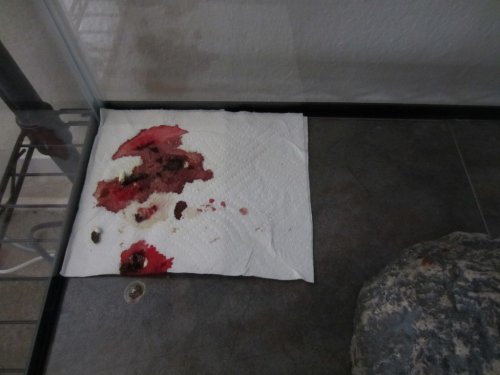symphonica
New Member
Is it really recommended that superworms' heads be crushed prior to feeding them to reptiles, as they can be nasty biters?
Follow along with the video below to see how to install our site as a web app on your home screen.
Note: This feature may not be available in some browsers.
That is a wise tale it's completely not true I believe on Olimpia's blog she debunked it.
Large hornworms are far worse for mandibles grabbing a chameleons tongue than supers. I have only ever seen a super worm nip one of mine on the eye turret, but an adult hornworm can grab a tongue and take hold which can cause an adult chameleon to choke. For this reason I crush the mandibles of hornworms once they reach a certain size. Supers are fine the way they are.
it is called a "wives tale" not wise! lol
The vet tech was more concerned about them biting and injuring their tongues. Mine personally has not had a problem, yet, but I don't know if he's just been lucky this far.
I never have and it is a myth that if you don't they will chew a hole through a chameleon's stomach. All the pet stores tell you that, but I don't think there is a documented case out there and I have never seen anyone post on here that it happened either.
This vet tech was telling me about an iguana that had the inside of its mouth "attacked" by one. I'm not sure if chams are particularly resistant to supers? Maybe iguanas put them into their mouths alive, unlike the chams that crush them?
And often a rumor believed to be a fact, magically transforms into a personal experience
I don't know how different the digestive tracts of chams and leos are, but I can't imagine them being too drastically different, and I have had a super find its way back out of one of my leos. I have since not fed supers to any of my herps.
Your vet tech should not be feeding insects to iguanas anyway.
